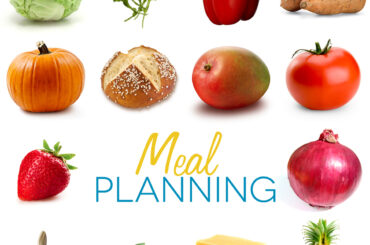
Premature ageing is frequently linked to poor dietary choices, and by adjusting what’s on our plate, we can reclaim energy, maintain muscle tone, and preserve youthful skin well into our later decades.
The Power of Protein: Your Anti-Ageing Secret
One of the most vital components of an age-defying diet is first-class protein. Aim to include high-quality protein sources like eggs, poultry, and lean meats two to three times per day. Protein is essential for cell regeneration, muscle maintenance, and overall vitality.
Although fish is also a great source of protein and omega-3 fatty acids, it can sometimes contain heavy metals and environmental pollutants, which may negate some of its benefits if consumed too frequently.
If you do include fish in your diet, opt for low-mercury varieties like salmon, sardines, or trout, and choose wild-caught when possible.
 Why Protein Matters More as You Age
Why Protein Matters More as You Age
Unlike fat or carbohydrates, protein is not stored in the body, which means a consistent intake is necessary.
If your diet is lacking, your body begins to break down muscle tissue to access the protein it needs. This leads to muscle loss, decreased strength, and a slower metabolism—all of which are commonly (and wrongly) accepted as normal parts of ageing.
Fat Is Not the Enemy—Sugar Is
For decades, we were told to fear fat. But eliminating healthy fats from your diet is one of the fastest ways to accelerate ageing.
Our skin cells rely on fats to stay plump, hydrated, and flexible. Natural fats like olive oil, avocado, coconut oil, and butter from grass-fed cows provide the nourishment your skin and brain need.
On the other hand, when fat is removed from processed foods, it’s often replaced with sugar or refined carbohydrates, which rapidly age the body.
These substances increase inflammation, damage collagen (the protein responsible for skin elasticity), and contribute to sagging skin and wrinkles.
The Sugar and Carbohydrate Trap
Excess sugar and refined starches don’t just impact your waistline—they also have a direct impact on how old you look and feel.
Overconsumption of sugar leads to glycation, a process where sugar molecules attach to proteins like collagen and elastin, making them stiff and brittle. The result? Fine lines, sagging, and a loss of that youthful glow.
Grains, especially refined ones, also act like sugar in the bloodstream. Eating too many of them causes insulin spikes, which leads to weight gain, fatigue, and premature ageing.
Reducing grain intake—especially white bread, pasta, and cereals—can make a noticeable difference in your appearance and energy levels.
Hydration: The Forgotten Youth Elixir
Water is one of the simplest, most powerful anti-ageing tools, yet it’s often overlooked. Dehydration can make your skin look dull, highlight wrinkles, and reduce overall vitality.
Aim for at least 2 litres (or 8 glasses) per day, more if you’re physically active or live in a hot climate.
If you’re consuming plenty of natural fats and protein but not enough water. That will mean your body won’t be able to effectively transport nutrients or flush out toxins. Which are both essential for a youthful glow.
Exercise: Move Smarter, Not Harder
A healthy diet is essential, but it’s only half the equation. Regular movement keeps your body strong, your bones dense, and your mind sharp. The good news? You don’t need to run marathons or spend hours at the gym.
Low-Impact, High-Reward
Low-impact exercises like walking, yoga, and Pilates, combined with light resistance training at least twice a week, can be just as effective.
If not more so—than intense cardio workouts. Weight-bearing exercises are especially important as we age. They help to prevent bone loss and reduce the risk of fractures from falls.
Strength training also helps to maintain lean muscle mass. Which not only improves your metabolism but gives the body a more toned, youthful appearance.
50 is the new 30 : Reclaim Your Youth
Looking and feeling younger isn’t about extreme diets or expensive skincare routines. It’s about consistently choosing whole, nourishing foods, cutting back on sugar and refined carbs, drinking water, and keeping your body moving.
To summarise:
-
Eat quality protein two to three times a day to support cell renewal.
-
Include healthy fats like olive oil, avocado, and coconut oil.
-
Minimise sugar and refined carbohydrates to reduce inflammation and protect collagen.
-
Stay hydrated to nourish your skin and organs from the inside out.
-
Incorporate regular low-impact exercise and strength training to preserve muscle and bone density.
With these adjustments, age becomes just a number—and 50 truly can be the new 30.






